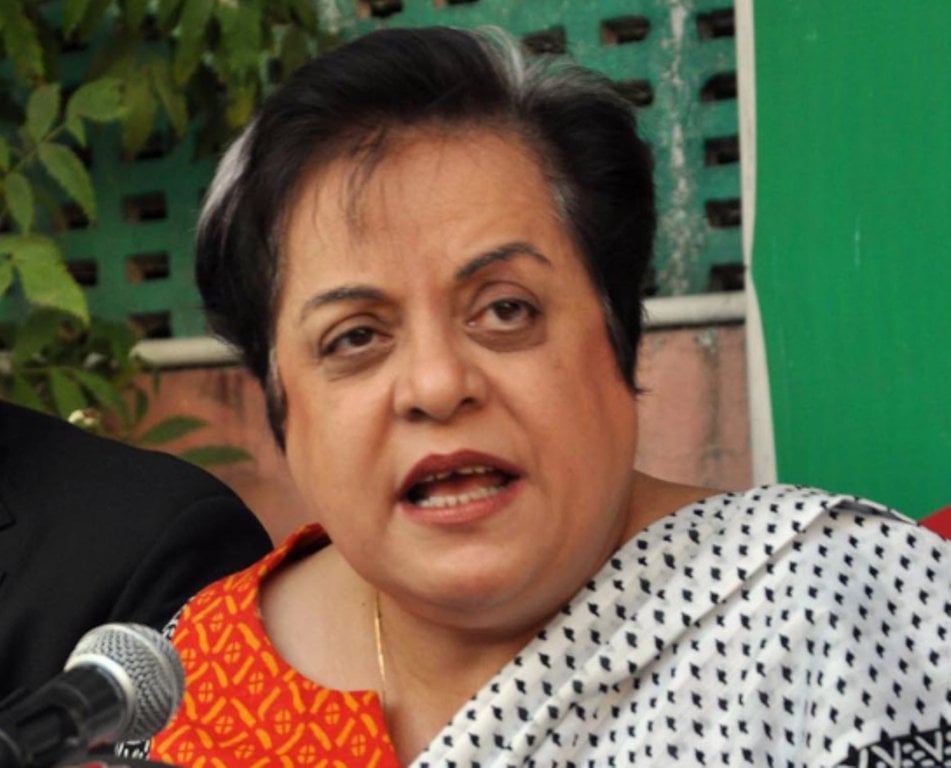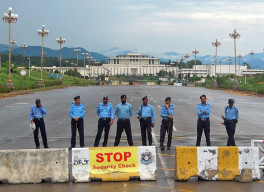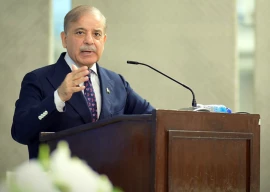
This was suggested by the Federal Human Rights Minister Dr Shireen Mazari on Tuesday while speaking at a conference on “Community Policing and Post-Conflict Police Reform in Pakistan”. The conference had been organised by the Norwegian University of Life Sciences (NMBU), COMSATS University Islamabad’s (CUI), Abbottabad campus and Rozan.
During her address, Dr Mazari reiterated the government’s commitment to protect and promote the human rights of all citizens of the country as per the Constitution.
Emphasising the difference between community policing and post-conflict community police, she said that there is a need to bring in local people into the police and administration.
She, however, stressed that the local police need to change their image from being harsh enforcers to a supportive institution by inviting more and more people to observe them and through community policing.
Talking about the greater issues which unite people across continents, the federal minister said that Pakistan and Europe share many issues, such as the issue of minorities and climate change.
We can see minority problems in Europe and India, she said
Referring to the violence during the Aurat March in the federal capital on International Women’s Day, Dr Mazari said that action is being taken, with the Islamabad Police have registered a first information report (FIR) against members of nine religious parties who had allegedly pelted the Aurat March participants. Such actions, she said, help bridge the trust deficit with the people.
The conference focused on sharing knowledge and experiences from the European Commission’s Horizon 2020 funded project extended over five years in 11 post-conflict countries, including Afghanistan, Pakistan, Uganda, Kenya, Somalia, Nicaragua, Guatemala, El Salvador, Kosovo, Serbia, and Bosnia and Herzegovina.
NMBU’s global team of 15 research institutions and 45 international police experts, practitioners and civil society organizations have jointly worked on this research project.
Concluding the conference, Islamabad Police Inspector General Aamir Zulfiqar Khan shared the key steps taken by the Islamabad Capital Territory Police (ICTP) for engaging the local community in citizen-centric policing.
A way forward to improve policing was also shared, including demands to increase financial, human and technical resources of police stations, increasing the number of women in the police force from the current levels of around 1.5% to 10% of total police strength including deployment of least two women police officers at each police station in every shift, training police officers on laws protecting the rights of women, children, people who are transgender, people who are living with disabilities and minorities apart from taking measures to promote positive image of the police.
Earlier, speakers at conference included the European Union Ambassador Androulla Kaminara, COMSATS University Islamabad Rector former National Coordinator of National Counter Terrorism Authority (NACTA) Dr Raheel Qamar, Ihsan Ghani, Punjab CPO and Establishment Additional IGP BA Nasir, FIA Additional Inspector General Dr Ehsan Sadiq, UN Police Advisor A Heather, Federal Ombudsperson Kahsmala Tariq, Rawalpindi Regional Police Officer (RPO) Dr Sohail Tajik, Rozan Managing Director Babar Bashir and UK Police officer Cecilia Dunster.
They highlighted the role of police to ensure internal security. They emphasized that democratic countries need democratic policing and that Pakistan needs to invest more in its police institutions so that they can meet the challenges and needs of policing in the 21st century.
Published in The Express Tribune, March 11th, 2020.

1731914690-0/trump-(26)1731914690-0-165x106.webp)








1731929357-0/Express-Tribune-(6)1731929357-0-270x192.webp)






COMMENTS
Comments are moderated and generally will be posted if they are on-topic and not abusive.
For more information, please see our Comments FAQ